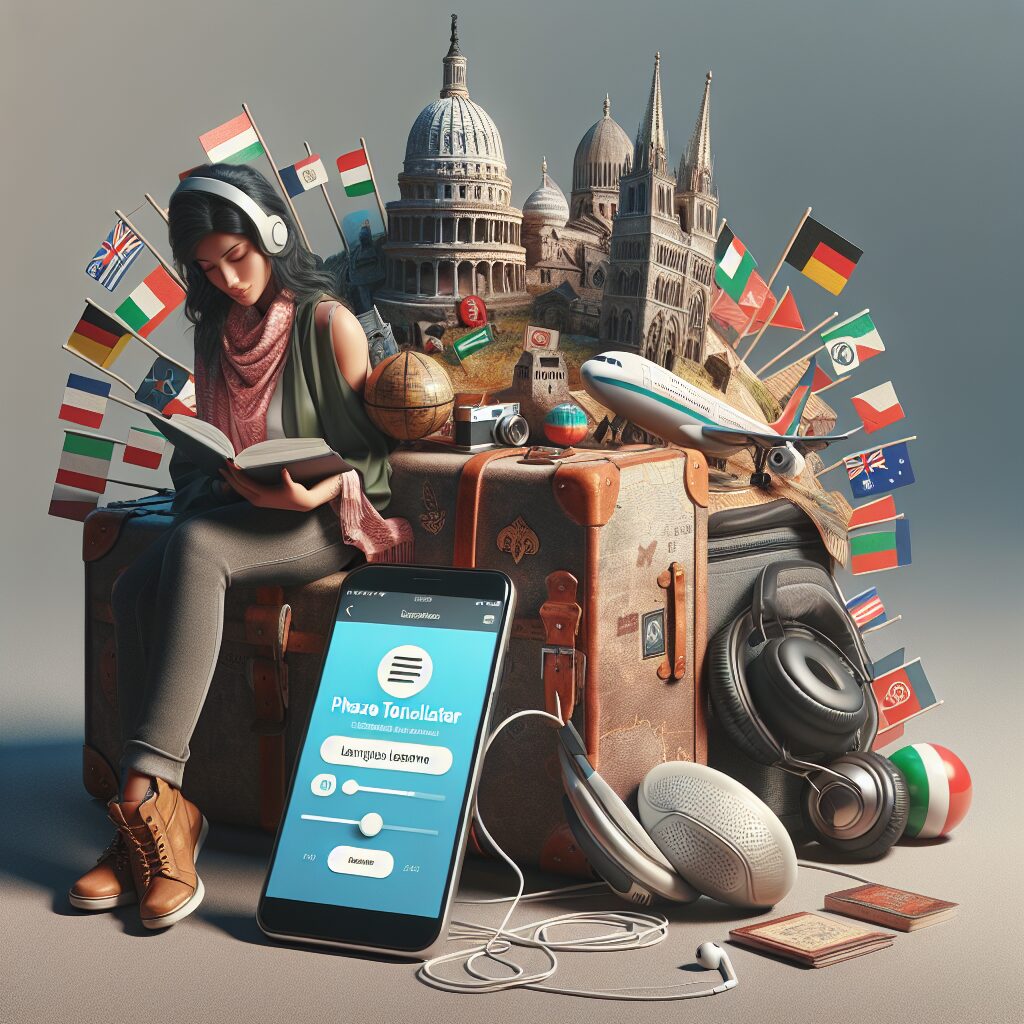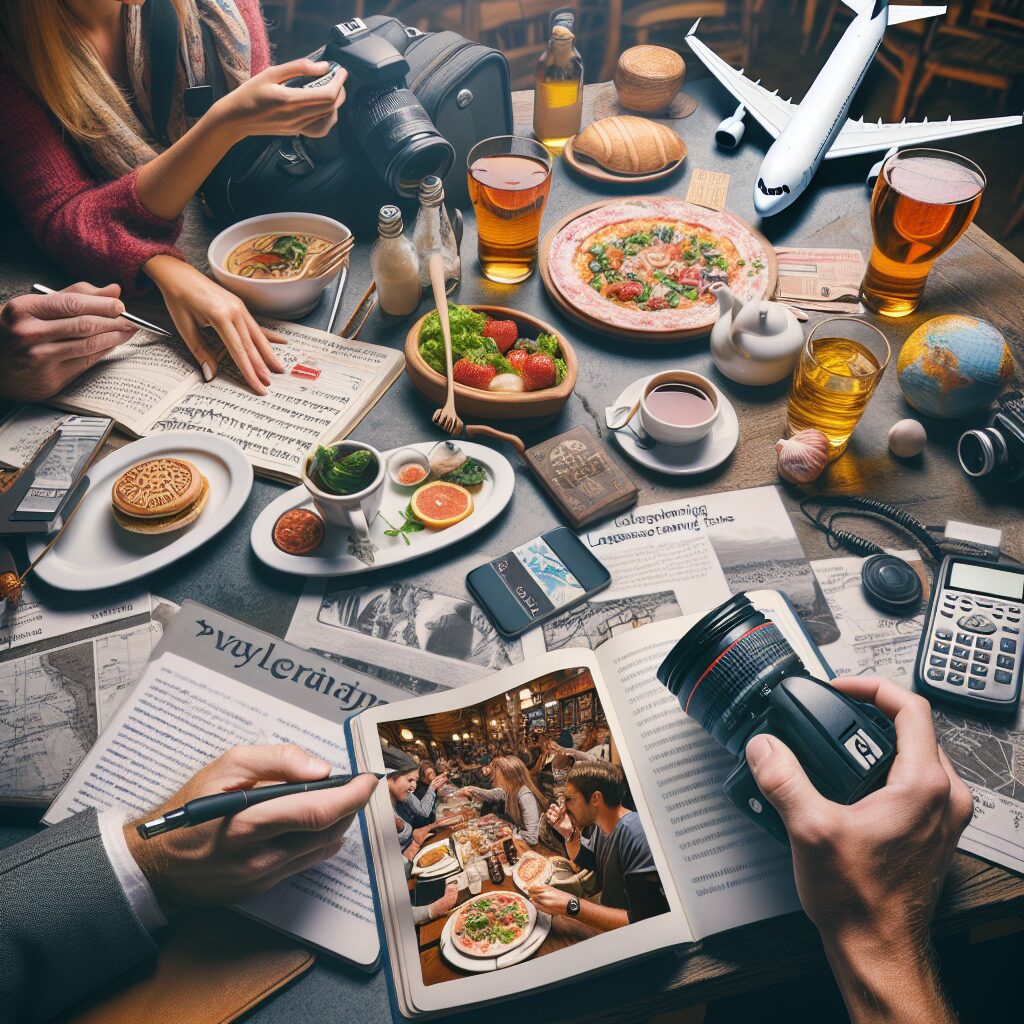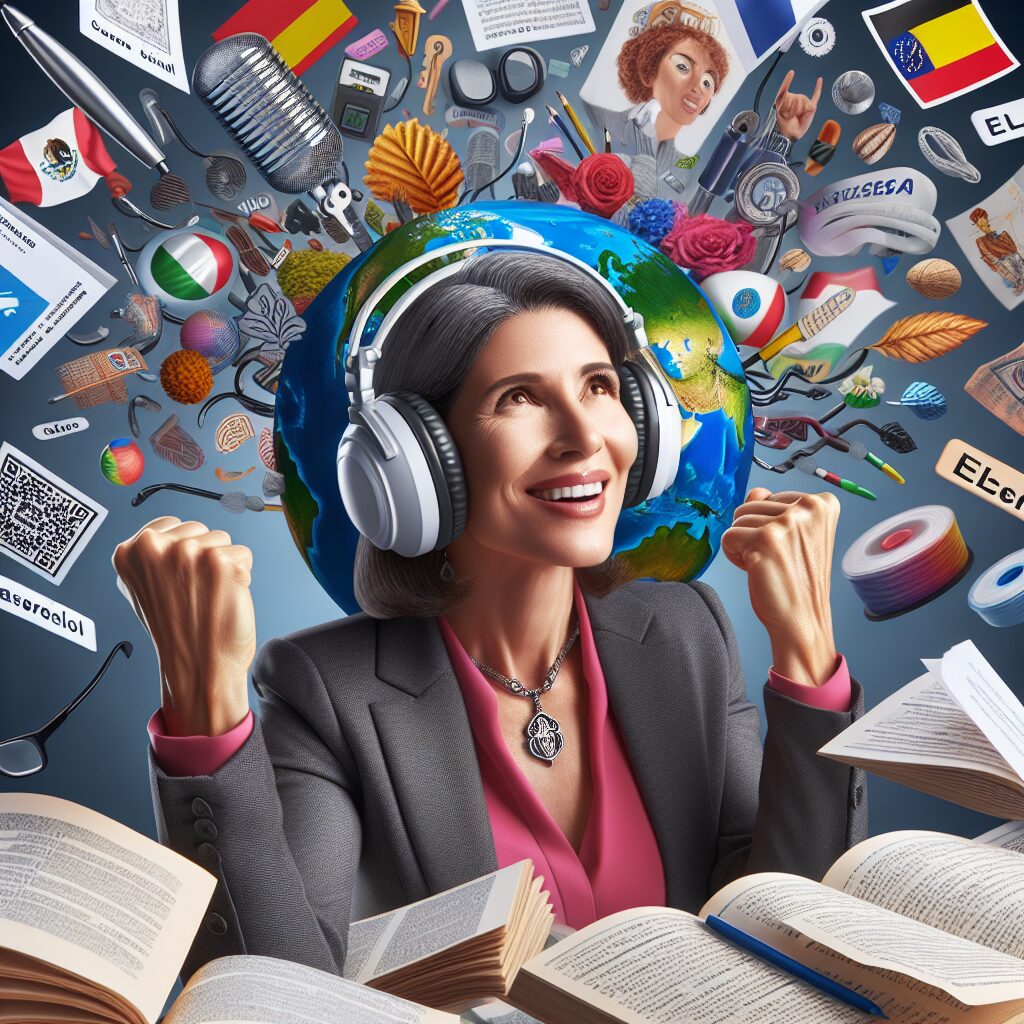Practical Language Learning Tips for Travel is a subject of utmost importance for globetrotters and language enthusiasts alike. Did you know that knowing even just a few basic phrases in the local language can greatly enhance your travel experience? Not only does it allow you to communicate with locals, but it also shows a level of respect and interest in their culture. Imagine the delight on a local’s face when you greet them in their native tongue! In this article, we will explore some practical language learning tips that can help you navigate foreign lands with ease and confidence.
One of the key impacts of language learning for travel is the ability to connect with people on a deeper level. While English is commonly spoken in many tourist destinations, venturing off the beaten path often requires some knowledge of the local language. Speaking even a few basic phrases such as greetings, goodbyes, and thank you can go a long way in breaking the ice and building rapport. It opens doors to meaningful conversations, genuine connections, and a deeper understanding of the local culture.
Now that we understand the importance of language learning for travel, let’s delve into the key takeaways to help you embark on your language learning journey with confidence. From effective language learning methods to practical tips for immersing yourself in the language, we will equip you with the tools you need to communicate effectively while exploring the world. Whether you’re planning a backpacking adventure or a luxurious vacation, these tips will provide you with the foundation to make the most out of your travel experiences.
Key Takeaways
1. Start with the basics: Begin by learning basic phrases and greetings in the local language to make a good first impression and show respect to the locals.
2. Utilize language learning apps: Take advantage of language learning apps, such as Duolingo or Babbel, to practice and improve your language skills on the go. These apps offer interactive exercises and provide a fun way to learn new words and phrases.
3. Immerse yourself in the language: Try to immerse yourself in the local language as much as possible by engaging in conversations with locals, watching movies or TV shows in the local language, and listening to local music or podcasts. This will help you familiarize yourself with the language and improve your listening and speaking skills.
4. Carry a phrasebook: Keep a phrasebook handy to quickly look up and reference important phrases or vocabulary when needed. It can be especially useful in situations where there is a language barrier or limited access to the internet.
5. Practice daily: Make language learning a daily habit by setting aside dedicated time each day to practice. Consistency is key when it comes to language learning, so try to incorporate it into your daily routine and commit to improving your skills regularly.
What are the Practical Language Learning Tips for Travel?
1. Immersion in the Local Culture
One of the most effective ways to learn a language while traveling is to immerse yourself in the local culture. Engage in conversations with native speakers, visit local markets, attend cultural events, and try out traditional cuisine. By surrounding yourself with the language, you will have more opportunities to practice and improve your skills.
2. Language Learning Apps and Websites
Utilize language learning apps and websites to enhance your language skills while on the go. Apps like Duolingo, Babbel, and Rosetta Stone offer interactive lessons, vocabulary exercises, and even flashcards to help you learn and retain new words and phrases. Make use of these resources during your downtime or while commuting to make the most of your travel time.
3. Language Exchange Partners
Find language exchange partners or attend language exchange meetups in the destination you are traveling to. These platforms and events provide an opportunity to practice speaking with native speakers. By helping each other learn your respective languages, you can improve your conversational skills and gain insights into the local culture from a local’s perspective.
4. Carry a Phrasebook or Language Guide
Even in this digital age, having a physical phrasebook or language guide can be incredibly helpful, especially in situations where internet access might be limited or unreliable. These resources provide essential phrases and expressions that can assist you in various day-to-day scenarios, such as ordering food, asking for directions, or booking accommodations.
5. Participate in Language Classes or Workshops
Consider enrolling in language classes or workshops during your travel. Many destinations offer short-term language courses for travelers interested in learning the local language. These structured classes can provide a solid foundation and help you practice your pronunciation and grammar skills under the guidance of a qualified teacher.
6. Practice Active Listening and Speaking
When interacting with locals, make a conscious effort to actively listen and speak in the target language. Don’t be afraid to make mistakes; instead, embrace them as learning opportunities. Pay attention to intonation, pronunciation, and the way words and phrases are used in context. The more you practice speaking and listening, the more your language skills will improve.
7. Keep a Travel Journal
Documenting your travel experiences in a journal not only serves as a memorable keepsake but also aids in language learning. Use the journal to practice writing in the target language, describing your experiences, and expressing your thoughts and feelings. This exercise will help reinforce vocabulary and grammar while encouraging creativity in your language use.
8. Seek Language Support and Feedback
Reach out to locals or language instructors for feedback or guidance on your language progress. Don’t hesitate to ask for corrections or help with pronunciation. Most native speakers appreciate foreign learners’ efforts and are willing to assist in your language learning journey.
Explore Practical Language Learning Tips for Travel:
- Develop a routine for language learning during your trip.
- Immerse yourself in local media (books, newspapers, TV shows, podcasts).
- Utilize flashcards or language learning games to enhance vocabulary.
- Find opportunities to practice speaking, such as joining a local sports team or volunteering.
- Don’t shy away from making mistakes and embracing them as learning opportunities.
Frequently Asked Questions
1. What are practical language learning tips for travel?
Practical language learning tips for travel refer to various strategies and techniques that can help travelers quickly pick up essential elements of a foreign language to enhance their communication during their journey.
2. How can I efficiently learn a new language before traveling?
To efficiently learn a new language before traveling, you can immerse yourself in the language by listening to podcasts, watching movies or TV shows, taking online courses, practicing with language exchange partners, and using language learning apps.
3. Are language learning apps effective for travel purposes?
Yes, language learning apps can be highly effective for travel purposes. They often offer interactive lessons, pronunciation exercises, and useful travel phrases that can be accessed anytime, anywhere, making them convenient companions for learning on the go.
4. How much time should I dedicate to language learning before traveling?
The amount of time you should dedicate to language learning before traveling depends on various factors such as your familiarity with similar languages, your availability, and your learning style. However, dedicating at least 30 minutes to an hour each day consistently can yield noticeable results.
5. Can I learn a language solely through online resources?
While learning a language solely through online resources is possible, it is highly recommended to practice speaking with native speakers or other language learners to improve your conversational skills and pronunciation.
6. What are some effective memorization techniques for language learning?
Effective memorization techniques for language learning include using flashcards, creating mnemonic devices, repeating information aloud, and incorporating new words and phrases into daily conversations or written exercises.
7. How can I overcome the fear of making mistakes when speaking a foreign language?
One way to overcome the fear of making mistakes when speaking a foreign language is to embrace the idea that mistakes are a natural part of the learning process. Remember that native speakers appreciate your effort and are often willing to help you improve.
8. Can I practice speaking a language by myself?
While practicing speaking a language by yourself can be beneficial for building confidence and perfecting pronunciation, it is crucial to engage in conversations with native speakers or language exchange partners to improve your communication skills within real-life contexts.
9. Is it necessary to learn the local customs and traditions in addition to the language?
Learning the local customs and traditions in addition to the language is highly recommended. It shows respect for the culture and enhances your ability to fully immerse yourself in the local experience, thus enriching your travel journey.
10. How can I maintain my language skills after returning from a trip?
You can maintain your language skills after returning from a trip by continuing to use language learning apps, practicing with language exchange partners, watching movies or TV shows in the language, and joining local language groups or classes in your hometown.
Final Thoughts
Practical language learning tips for travel can significantly enhance your travel experience. By investing time and effort into learning even the basics of the local language, you can open doors to deeper cultural interactions, establish connections, and navigate your way through unfamiliar territories with ease.
Remember, language learning is a lifelong journey, and the skills you acquire while preparing for a trip can continue to enrich your life in numerous ways beyond travel. Embrace the challenge, practice regularly, and reap the rewards of being able to communicate in different languages wherever your adventures take you.











